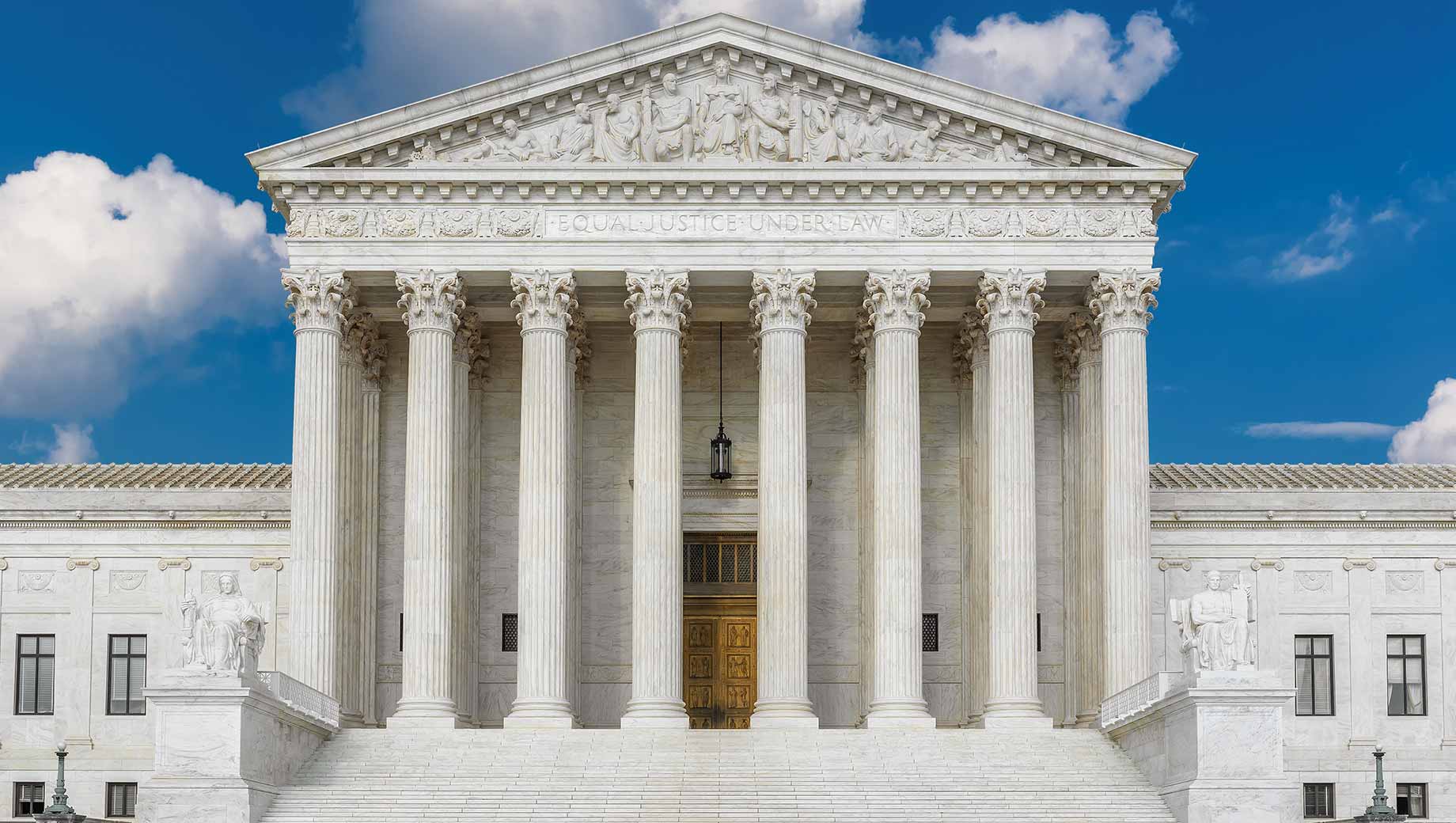
For the first time since the beginning of the COVID-19 pandemic almost three years ago, the SCOTUS had a justice issue a decision directly from the bench in Arellano v. McDonough on Monday. In her first summarized opinion from the bench, associate justice Amy Coney Barrett announced the unanimous decision of the court in a case involving military benefits.
Case Background:
Petitioner, Adolfo Arellano (U.S. Navy Veteran)
Respondent, Denis McDonough (Secretary of the VA)
The petitioner, Adolfo Arellano, served in the United States Navy from November 1977 to October 1981. Mr. Arellano was seriously injured in an aircraft carrier collision in 1980 that forced to medically retire a year later. As a result of this incident, Mr. Arellano suffered from bipolar disorder and PTSD and had been largely unable to care for himself alone. 30 years after his discharge, on June 3rd, 2011, Arellano applied for disability benefits on the basis of a psychiatric disorder that he claimed left him “100% disabled.” To successfully acquire retroactive disability benefits from the military, one must apply for these benefits within one year following their discharge from service. Thus, Mr. Arellano only started receiving monthly disability benefits starting from when he filed in 2011; he seeks to acquire hundreds of thousands of dollar in back pay from the 30 years that passed from his discharge to his filing date. Mr. Arellano claims that his disability prevented him from applying for benefits sooner and thus explains why he had missed the deadline. He argues that him and many others alike him should receive these retroactive payouts due to their respective disabilities inhibiting them from filing sooner.
The court was asked to rule in this case whether military veterans can receive retroactive benefits even if they missed the filing deadline for disability benefits from the U.S. military. A case that could potentially reward tens of thousands of dollars to veterans in back pay who similarly missed filing deadlines, the court is asked to make a significant decision on the rights of disabled military veterans.
Ruling:
Unanimous ruling in favor of respondent, McDonough
Justice Barrett vehemently states in the unanimous ruling by the court “the statute sets out detailed instructions that explain when various types of benefits qualify for an effective date earlier than the default.” She wrote that federal rules are clear on the one-year window that veterans must file paperwork within to receive back date payouts to their military separation date. Additionally Barrett includes a strong line in her opinion that stuck out to me: “hard and fast limits on retroactive benefits can create harsh results.”
Conclusion:
The Court of Appeals, in 2021, concluded that Mr. Arellano’s claim did not warrant sufficient legal precedent. This court cited the ruling in Andrews v. Principi, which held that “principles of equitable tolling are not applicable to the time period (one-year window).” Equitable tolling is a legal principle which ideally grants an extension in deadlines for individuals who can adequately prove some sort of inhibition or disability that prevented them from meeting a deadline.
Citing the upheld ruling of the Court of Appeals ruling, Justice Barrett and the rest of the bench were clear on their interpretation of federal law and that often the law is the hard truth. In a case that has riddled the federal judiciary for years and been under a microscopic lens from numerous military watchdogs, retroactive disability benefits will not need be repaid and the court establishes the inability to extend that one-year deadline clearly in their ruling in Arellano v. McDonough.
Sources:
https://www.oyez.org/cases/2022/21-432
https://www.nytimes.com/2023/01/23/us/supreme-court-veteran-opinions.html
https://www.supremecourt.gov/opinions/22pdf/21-432_f2bh.pdf
Image Source: https://news.gallup.com/poll/394103/confidence-supreme-court-sinks-historic-low.aspx
Hi Hunter! As a political science major, I certainly have an interest in the complexities and ambiguities of the law, so I really enjoy your passion blog topic analyzing big SCOTUS decisions. You do a great job of introducing the decision and then providing detailed commentary on it. Your straightforward explanation of legal terms, such as equitable tolling is fascinating it and you explain it very clearly. I agree with your personal conclusion that yes, sometimes “the law is the hard truth,” though this does not mean that this truth does not or cannot change over time.
I never realized that you can get bi-polar disorder from outside sources, but to read about what happened to that poor man and what he had to deal with for decades… what a tragedy. I feel even worse knowing that the case did not go the way that he (and many other veterans I’m sure) wanted. However, like what you have said, there are reasons why there are laws and rules set in place to begin with. I am a firm believer that if a law is deemed unjustifiable, it can change and since the law that this case is based around has not changed yet, I’m sure there’s a reason why.
As someone who loosely followed this court case, it is very interesting to hear your overview and perspective. The way you laid out the case and conclusion was very straightforward and easy to understand and I liked the way you highlighted how difficult this issue is. I agree that while the dissent was unfortunate, laws are upheld for a reason. Excited to find out what other cases you are going to cover and can’t wait to read more!